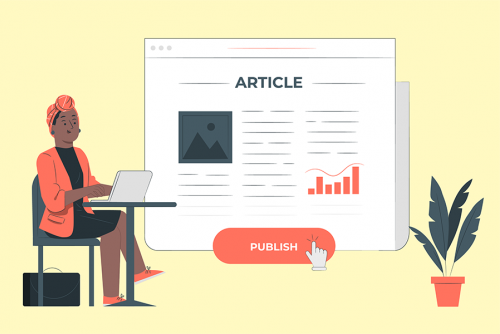Source: Adapted from Andrew Pulrang's Forbes article, "It’s Time For A Reimagining Of Disability Etiquette."
Recognize and respect bodily autonomy and personal privacy
Don’t touch or handle a disabled person/person with a disability, their adaptive equipment or assistive technology, or their service animal without specific permission. Ask if someone needs help, rather than assuming they do.
Treat disabled people with the same respect and recognition as anyone
Speak to disabled person/person with a disability directly, not to a third party next to them, whether a friend or a sign language interpreter. Don’t avoid looking at or interacting with disabled people. Don’t make tasteless jokes about disabilities, or treat needs and requests as a burden.
Listen to disabled people
Don't talk over a disabled person/person with a disability or assume you know what's best for that disabled person/person with a disability because you know someone else with a disability. A common quote in the disability community is, "If you know one disabled person, you know one disabled person." Disabled people/people with disabilities are not a monolith - they have different needs and different lived experiences.
Use the word disability
Disabled people/people with a disabilities do not have an issue with the word disability. There is a whole Twitter campaign called #SayTheWord promoting the words disability and disabled. It is how the community identifies. Over the years, non-disabled people have come up with new terminology (i.e. euphemisms). This terminology is often established as a way to make a non-disabled person comfortable with discussing disabilities and hinders progress for the disability community.
Terms to Avoid
These terms are disliked by various groups within the disability community. There are people in the disability community that do use these terms so, if a disabled person/person with a disability uses the term, you should not argue with them on whether the term should be used or not. However, non-disabled people should avoid using these terms due to the inherent issues with these words, especially when used by the non-disabled community.
- Differently-abled, Handi-capable, Otherly-Abled, and Special Needs: Many members of the disability community consider these terms a way to avoid the word disabled. They are seen as a way of diminishing or even erasing the experiences of disabled people. Lydia X. Z Brown provides additional details on the problem with the term differently-abled in the post, "How 'Differently Abled' Marginalizes Disabled People." Read "Disability is not a dirty word; 'handi-capable' should be retired" for more on the issues with these euphemisms in general.
- Able-Bodied: This term is sometimes used instead of non-disabled. The main issue with it is that it implies that all disabled people lack "able-bodies" or the ability to use their bodies well. We recommend using the term non-disabled when referring to someone who does not have a disability.
For additional terminology advice in regards to specific disabilities, please visit the APA Style Guide - Disability page.
Amplifying Disabled Voices: Lachi's thoughts about the term "differently-abled"
In this LinkedIn post on euphemisms, blind singer Lachi discusses why she doesn't use the word differently-abled and advocates for either identity-first (which she prefers) or person-first language.
Amplifying Disabled Voices: Jeremy Andrew Davis's thoughts on the term "different ability"
In this LinkedIn post and video, neurodivergent and multi-disabled disability activist Jeremy Andrew Davis does a great job of explaining why the popular euphemism "different ability" does the opposite of avoiding ableism and even erases the need for accommodations. He also addresses both the internalized ableism of using the term as well as disability supremacy.
Use a community or individual's preferred disability language
For several years, there was a focus on person-first language (i.e. people with a disability) in the United States, but many disability communities identify as identity-first (i.e. disabled person). Many in the Blind, Deaf, Deafblind, and Neurodivergent communities want to be recognized by identity first (i.e., "I am an autistic person" rather than "I am a person with autism"). In fact, many members of the disability community have noted they prefer identity-first as their disability is a huge part of their identity and culture. However, that does not mean that all disabled people/people with disabilities prefer identity-first so it's best to ask an individual their preference.
Cara's quote is an important one. For example, parents and allies of autistic individuals often promote person-first language. However, as mentioned above, the majority of the autistic community prefers identity-first as autism isn't something detached from their identity - it is integral to who they are.
Again, there is no "right way" when it comes to identity-first and person-first as it depends on the community and the individual. Emily Ladau provides a good overview of the complexity of this topic in her book Demystifying Disability. The most important thing to remember is that it is not okay to argue with a disabled person/person with a disability on their individual language preference. There are reasons a person can feel strongly about either person-first or identity-first. Instead, listen to why it is important to them.
Note: The Inclusive by Design website is geared towards the social model of disability, so we use identity-first language in several places on the site. However, we do our best to honor all community and individual preferences by using both identity-first and person-first language interchangeably in various places on the site. This site does not intend to declare that identity-first is the preferred language for everyone. As mentioned above, preference varies, so either identity-first or person-first language should be used based on the preference of a community or individual.
Do not provide unsolicited advice
Don’t give unsolicited medical, emotional, or practical advice to disabled person/person with a disability. You may think it is well meaning to suggest remedies, herbs, and other friendly tips, but it often carries the assumption that the disabled person/person with a disability hasn't tried what you are recommending.
Additional Resources
These resources provide additional perspectives from the disability community about disability etiquette.

Article: "I've Been Paralyzed Since I Was 3. Here's Why Kindness Toward Disabled People Is More Complicated Than You Think"
In this article, Rebekah Taussig shares personal stories about how society defines being kind to a disabled person can actually do more harm than good.

Video: Everything You Need to Know About Guide Dogs
In this video, Molly Burke talks about how she commands a guide dog, why people can't pet guide dogs when they are working, etc.

Article: "'Disabled': Just #SayTheWord"
In this interview by Barbara J. King, Lawrence Carter-Long answers questions on the #SayTheWord campaign and why saying the word disabled is so important.

Article: "Dear Parent of a Child With Down Syndrome, Let's Stop Shaming People for Not Using 'Person-First' Language"
In this article, Kelly Simpson talks about the importance of recognizing language preferences among the community and that it's important not to shame folks for their language preferences.
